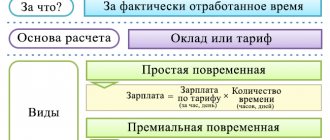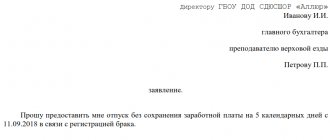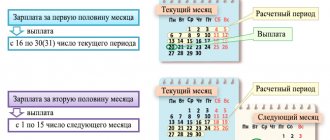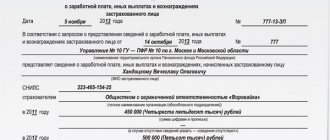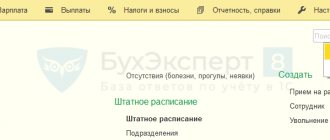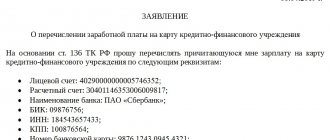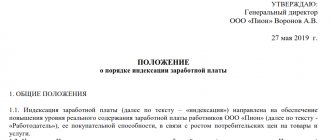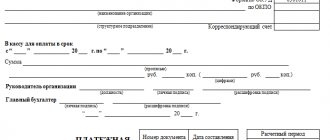When leave without pay is granted under the Labor Code of the Russian Federation
Leave without pay within the meaning of Art. 128 of the Labor Code of the Russian Federation is provided primarily in connection with the personal circumstances of the employee. Leave must be given in the following cases:
- birth of children;
- marriages;
- death of loved ones.
As for the employee’s other personal situations, the employer can give him leave himself if he deems it necessary.
In addition, the Labor Code of the Russian Federation provides for additional free time:
- for disabled workers;
- working pensioners;
- veterans.
How is unpaid leave processed?
The employee writes an application for leave without pay, indicates its start and end dates and the reason. If he is entitled to leave by law, he attaches the relevant documents: a certificate from an educational institution, a birth certificate with a dash in the “Father” column or a mother’s death certificate, a certificate from a second job.
The employer makes a decision on the application, issues an order, and enters information into the employee’s personal card. If the company keeps a time sheet, enter the information there. The employee signs this order, and then the leave at his own expense acquires legal force.
Vacation periods that the employer is required to provide
These periods depend on the reasons for leave and are specified in the Labor Code of the Russian Federation or Federal Law.
The Labor Code of the Russian Federation provides for the following deadlines:
- from 5 to 60 calendar days - according to Art. 128 Labor Code of the Russian Federation;
- from 10 days to 4 months - according to Art. 173 and 174 (for unpaid study leave);
- the estimated number of days required to comply with the required main vacation time (for example, for an external part-time worker).
According to the Federal Law, the deadlines can be:
- tied to the performance of civic duties (for example, members of election commissions are granted leave during the election period);
- are specifically defined (for holders of relevant statuses and titles, for example Hero of Labor);
- established based on the estimated number of days required to comply with the Federal Law (for example, when a military man and his wife are on simultaneous leave).
Maximum term
The number of days that employees can count on is regulated by Article 128 of the Labor Code of the Russian Federation or by mutual agreement of the parties between employers and employees. The deadlines did not change in 2022 or 2022. The data is shown in the table.
| No. | Category of persons | Maximum period during the year, in days |
| 1 | WWII participants | 35 |
| 2 | Working pensioners who have reached their old age pension payment | 14 |
| 3 | Family members of military personnel who died in the line of duty or as a result of injuries received | 14 |
| 4 | Disabled people working | 60 |
| 5 | All employees of the institution on the occasion of the birth of a child, marriage or organization of the burial of a blood relative | 5 (in each case) |
| 6 | Employees who are admitted to enter and study at universities | 15 |
| 7 | Employees who are allowed to enter and study in secondary specialized institutions | 10 |
| 8 | Part-time employees | For the days of difference in vacation between the main and combined place of work |
All days that the employee spent on vacation without pay are subsequently excluded from the calculation periods to calculate the amount of average earnings, regardless of how many days were unpaid.
Those persons who, according to the Labor Code, are entitled to unpaid leave in accordance with the second paragraph of Article 178, are included in their seniority.
It is important to remember that employers have the right to provide students and persons undergoing training with educational leave with pay.
Registration of leave without saving earnings (nuances)
Vacation without pay begins to be issued, like all others, with an application. A special feature in this case is that the application must indicate the reason why leave is needed.
If leave at your own expense is mandatory, supporting documents must be attached to the application, for example:
- certificate of summons from an educational institution - for study leave without pay;
- an extract from the order (or a copy of the order) for leave for the main job - to provide additional days for external part-time work, etc.
If documents are not yet available at the time of requesting leave (for example, a birth or marriage certificate), they should still be presented to the employer after the leave (when they are ready). Otherwise, management will have the opportunity to count vacation days without saving earnings as absenteeism.
In any case, leave is issued by a separate order.
A selection of forms from ConsultantPlus will help you correctly prepare all the documents for a vacation at your own expense. If you do not yet have access to this legal system, trial access can be obtained for free.
A sample annual leave order can be downloaded here.
In subsequent calculations of average earnings, days of unpaid leave are excluded.
For calculations related to vacation experience:
- vacation days at your own expense from 1st to 14th are included in the calculation;
- days from the 15th onwards are not included.
Important! ConsultantPlus explains In this case, the end date of the working year is shifted by the number of days excluded from this length of service. In this case, in the order for the provision of annual paid leave, issued according to the unified form N T-6, in the column “for the period of work” the working year is indicated with offset dates (Letter of the Ministry of Labor of Russia dated November 23, 2018 N 14-2 / B-933, Letter of the GIT in Moscow dated 06/04/2020 N 77/10-20669-OB/18-1299). For example... You can view the example in K+ by getting free trial access.
If an employee required additional leave without pay during the probationary period (internship), the days of vacation during the probationary period (internship) are not counted.
The employer may entrust the duties of an employee who has gone on vacation to someone else or hire a temporary employee for these purposes.
An employer cannot require an employee to interrupt his vacation at his own expense. But he may refuse to take into account working days for an employee who himself decided to interrupt his vacation before it ends.
Article 128 of the Labor Code of the Russian Federation. Leave without pay (current version)
1. In addition to annual paid leave, employees in accordance with the commented article may be granted leave without pay.
In accordance with Part 1 of Art. 128 the duration of such vacations is determined by agreement between the employee and the employer. Thus, in each specific case, the duration of leave without pay is determined by agreement of the parties, depending on the circumstances (reasons) for which the need for such leave arose.
2. Leave without pay can be granted (upon a written application from the employee) only if there is a good reason. Therefore, in the application, the employee must indicate the reason why he needs leave.
Whether the reason is valid is up to the employer to decide. According to established practice, valid reasons, in addition to marriage, death of close relatives, include seeing off a son for military service, sending children on vacation to summer camps, etc.
3. Leave without pay, provided for in Art. 128 are divided into two groups: those that are given at the discretion of the employer (i.e., the employer has the right to refuse to provide leave), and those that the employer is obliged to provide at the request of the employee.
The first group includes leaves granted for family and other valid reasons.
The second - vacations provided for in Part 2 of Art. 128 for certain categories of workers (this list is not exhaustive). The employer is obliged to provide leave without pay in other cases provided for by the Labor Code, other federal law or collective agreement.
In particular, the employer is obliged, based on a written application from the employee, to provide leave without pay:
- participants of the Great Patriotic War - up to 35 calendar days a year;
- working old-age pensioners (by age) - up to 14 calendar days per year;
- parents and wives (husbands) of military personnel, employees of internal affairs bodies, the federal fire service, authorities for control of the circulation of narcotic drugs and psychotropic substances, customs authorities, employees of institutions and bodies of the penal system, killed or died due to injury, concussion or injury received while performing the duties of military service (service), or as a result of an illness associated with military service (service) - up to 14 calendar days a year;
— working disabled people — up to 60 calendar days a year;
- employees in cases of the birth of a child, marriage registration, death of close relatives - up to five calendar days.
Other cases of granting unpaid leave provided for by the Labor Code and other federal laws include leave granted:
- employees caring for minor children, for a period of up to 14 calendar days - in accordance with Art. 263 Labor Code (see commentary to it);
- workers - Heroes of the Soviet Union, Heroes of the Russian Federation, full holders of the Order of Glory, Heroes of Socialist Labor and full holders of the Order of Labor Glory - for up to three weeks a year at a time convenient for them (Law of the Russian Federation “On the status of Heroes of the Soviet Union, Heroes of the Russian Federation and full holders of the Order of Glory”, Federal Law “On the provision of social guarantees to Heroes of Socialist Labor and full holders of the Order of Labor Glory”);
- employees admitted to entrance examinations - 15 calendar days;
- employees - students of preparatory departments of educational organizations of higher education to pass the final certification - 15 calendar days;
- employees studying in state-accredited bachelor's degree programs, specialist programs or master's programs in full-time study, combining education with work, for passing intermediate certification - 15 calendar days in the academic year, for preparing and defending the final qualifying work and passing the final state exams - four months, for passing final state exams - one month (see commentary to Articles 173, 174);
- veterans of the Great Patriotic War, veterans of military operations on the territory of other states, incl. and disabled people - from 35 to 60 days a year (Articles 14 - 19 of the Law on Veterans).
4. In all cases of granting leaves without pay, regardless of their purpose and duration, they must be formalized by an order (instruction) on leave.
Having received unpaid leave, an employee can interrupt it at any time and return to work, notifying the employer about this.
Comment source:
Rep. ed. Yu.P. Orlovsky “COMMENTARY ON THE LABOR CODE OF THE RUSSIAN FEDERATION”, 6th edition ACTUALIZATION
ORLOVSKY Y.P., CHIKANOVA L.A., NURTDINOVA A.F., KORSHUNOVA T.YU., SEREGINA L.V., GAVRILINA A.K., BOCHARNIKOVA M.A., VINOGRADOVA Z.D., 2014
Sample application for leave by agreement with the employer
Example
Employee Kovaleva I.K. is the mother of three school-age children. The enterprise's collective agreement provides for unpaid leave for up to 14 days for employees raising 2 or more children under 14 years of age (Article 263 of the Labor Code of the Russian Federation). According to the schedule, Kovaleva goes on her main vacation from 08/01/2021 to 08/28/2021 and wants to add 4 days to it at her own expense to prepare her children for school.
| AGREED: | General Director of CJSC "Metizy" A. A. Panfilov |
| Visa (decision) | To (position, full name) |
| CEO | From: adjusters |
| Manager's position | From whom (position) |
| Panfilov A. A. | Kovaleva I.K. |
| Full name of the head | From whom (full name) |
| Signature |
STATEMENT
I ask you to grant me additional leave without pay from 08/29/2021 to 09/01/2021 in connection with the preparation for school of children born in 2005, 2008 and 2010 (based on clause 10.12 of the collective agreement)
| I. K. Kovaleva | ||||||||
| date | Personal signature | Full name | ||||||
Employee rights
During unpaid leave, the employee retains his place of work (position).
While an employee is on vacation, his dismissal at the initiative of the employer is not allowed.
An exception to this is the liquidation of an organization or termination of the activities of an individual entrepreneur (Part 6 of Article 81 of the Labor Code of the Russian Federation). EXAMPLE.
DISMISSAL DURING VACATION The driver of Beta LLC, T.P. Sidorov, took a leave of absence for five months for family reasons without saving his salary. Two months later, the company began reducing staff and it was decided to reduce his position (clause 2, part 1, article 81 Labor Code of the Russian Federation). To notify T. P. Sidorov of the upcoming layoff, the management of Beta LLC sent him a registered letter by mail with a receipt confirmation and a list of the attachments (Part 2 of Article 180 of the Labor Code of the Russian Federation). However, the company does not have the right to fire the driver for reduction, because he is on leave without pay, and also to recall him from this leave for dismissal (Part 6 of Article 81 of the Labor Code of the Russian Federation). Therefore, Beta LLC will dismiss the employee on the day T. P. Sidorov returns to work from of this vacation.
Results
Leave without pay is a measure to support employees in cases where it is not possible to take other types of leave, but free time is necessary. Both employees and employers should be aware of the legal requirements regarding such leave.
Sources: Labor Code of the Russian Federation
You can find more complete information on the topic in ConsultantPlus. Free trial access to the system for 2 days.
When can an employee take leave without pay?
An employer cannot ask an employee to take leave without pay, and an employee can take such leave at will. Typically, leave is taken for a good reason: family matters, the birth of a child, a wedding, the death of a loved one. Moreover, an employee can ask for leave at his own expense without a valid reason for any period. The law does not establish a list of valid reasons, and the employer himself decides whether to let the employee go.
This issue requires correct negotiations between the parties. If an employee absolutely needs a vacation, he may resign, and the company will lose the employee. It may be better to agree on vacation dates rather than cause conflict. To avoid unfavorable situations, the employer should consider the issue of such leaves in advance and establish the rules in the company’s local regulations. There he can limit the duration of vacations and introduce other conditions.


